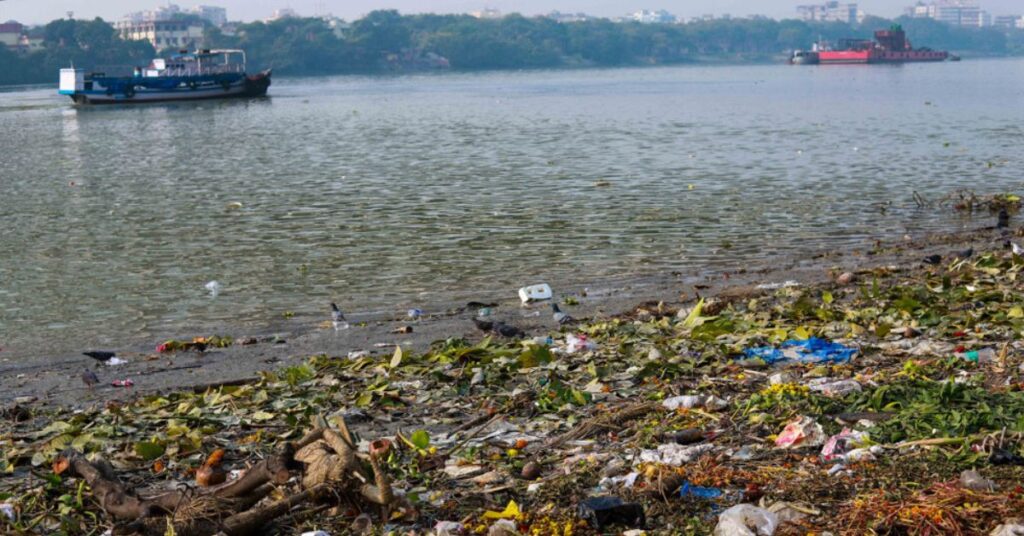
A recent annual survey report by the Bihar State Pollution Control Board (BSPCB) has raised alarm bells regarding the quality of water in major rivers passing through the state, highlighting that they are unsafe even for bathing. The report, presented in the state legislature, disclosed concerning levels of faecal coliform bacteria in rivers like Ganga, Sone, Kosi, and Bagmati, among others, across 27 districts.
According to the report, samples from 98 points in these rivers showed alarmingly high levels of faecal coliform bacteria, a key indicator of water pollution. For instance, the Sirasia river at Raxaul recorded around 2,40,000 most probable number (MPN)/100ml, far exceeding the WHO’s safety threshold of 1000MPN/100ml for irrigation purposes.
Dr. UC Samal, an internal medicine specialist, warned of the health risks associated with swimming or consuming water contaminated with faecal coliform bacteria. He explained that such exposure could lead to various illnesses, including fever, gastroenteritis, and ear infections.
The BSPCB report highlighted specific contamination levels in different rivers. For example, samples from various stretches of the Ganga revealed faecal coliform bacteria counts ranging from 92,000 to 28,000 MPN/100ml. Similarly, the Sone and Gandak rivers showed worrying contamination levels, raising concerns about the safety of water resources across the state.
To address the issue, the Bihar government has undertaken several initiatives, including the implementation of sewage treatment plants (STPs) and drain water management projects, amounting to over ₹1200 crore. Additionally, the government has allocated ₹4,000 crore, levied by the National Green Tribunal (NGT), for setting up more STPs to tackle liquid and solid waste management.
While these efforts aim to curb river pollution, officials emphasize the need for continued vigilance and comprehensive action plans to identify and mitigate major sources of contamination. The state remains committed to safeguarding public health and environmental sustainability amidst growing concerns over water pollution in Bihar.
Sources By Agencies




